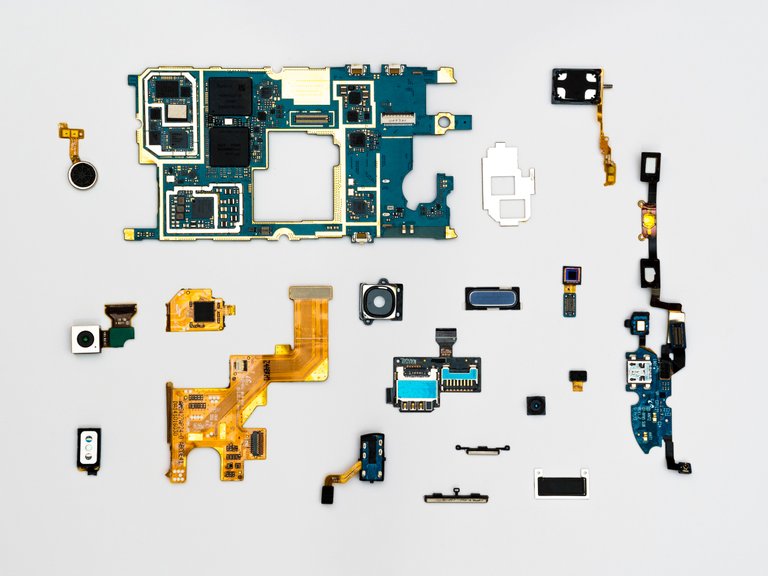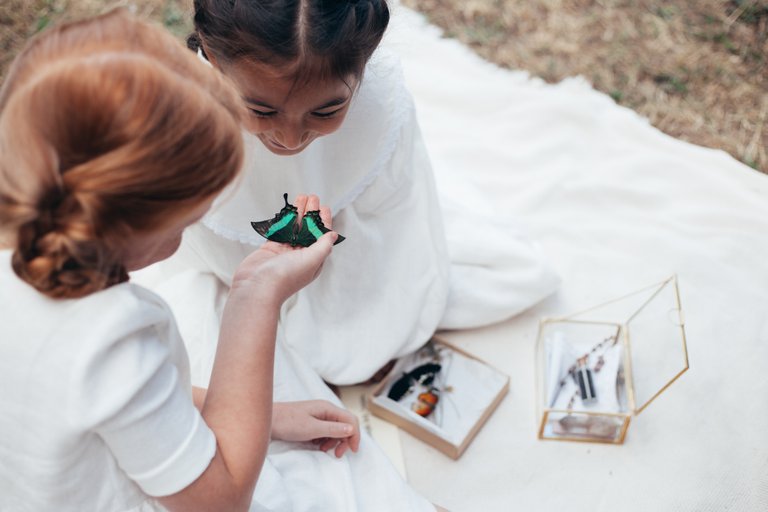Curiosity As A Fuel For Learning And Innovation
I'm not sure if it is a natural disposition but from a very early age, I would try taking apart any device within reach and study its different components.
Naturally, the device will stop functioning if I was successful in taking it apart. My success rate on successfully fixing it back together was below 30%.
In many cases, I wasn't able to put it back together again despite spending a week or more on it. This was quite frustrating to say the least but it didn't stop me from putting my eyes on the inside of these devices.
A particular episode that made me lose much of this tendency to take devices apart was when I had a smartphone and endeavoured to modify the software.
By this time, I understood much about the hardware. They've become sophisticated and operating on them was no piece of cake for me.
Software was easy, especially if one knows the terminologies. Besides, it didn't require any tools(physical).
This device was a Samsung S series, probably S3. Mind you, it was new and there was nothing wrong with it. I just felt like tweaking the software through modifying the operating system.
But what a nightmare it was! After installing the new OS, the device pretty much became unusable. It kept crashing, overheating and the network signal disappeared into oblivion.
Panick stricken, I rushed to the repair stores and they told me the problem was with the machine(hardware) which needed to be changed. This cost nearly as much as the smartphone itself.
I figured they didn't fully understand the problem so I went back home and try reverting it back to the previous operating system. After many unsuccessful attempts, it worked.
Everything went back to normal except the dissappearance of the network signal. This never came back. Which meant no calls, messages or mobile data connection on this device for eternity.
The Nature Of Curiosity
A dictionary defines curiosity as 'the tendency to ask and learn about things by asking questions'. I'll say it is simply the ability to explore the unknown.
When we look at the evolution from childhood to adulthood in terms of curiosity, we realise that there's often a general and gradual decrease of it as we grow older.
Children are naturally curious and most of their vibrant energy is geared towards exploring. With their small hands, they will 'touch' everything that's touchable around them, which can be quite disastrous at times.
Adults are seemingly less curious compared to children. Considering that every adult was once a child. One could say that adults have passed the peak of curiosity and moved on to other abilities.
One could also say that the opportunity to be curious reduces as we become adults. With all the responsibilities of adulthood such as survival, there's little to no time to be curious.
Or one could also say that curiosity evolves in adulthood and it stops being overt like with a child. Instead of touching objects with our hands, we touch and explore them(and subjects) with our mind.
Whatever the case may be, curiosity doesn't leave adults but adults leave curiosity depending on the circumstances they stumble on.
Oftentimes, the reason why we stopped being curious is because as we don't find a thing that catches our attention and ignites our curiosity as we evolve.
Luckily, this wonderfully complex world has its own ways of reigniting it back.
Basically, curiosity allows us to fathom and make sense of our environment. Which is a key part of individual growth and evolution.
Learning And Innovation
Interestingly, curiosity is an active principle that requires an active attitude. One just can't sit down and do nothing when they're curious.
The common and standard approach with the learning process is that of a teacher and a student. The teacher gives knowledge and the student receives.
Learning and innovation are closely related concepts that both involve curiosity and an active attitude. With curiosity, there is the desire to know more about something.
But it is not enough to just passively receive information from a teacher or a source; one has to actively engage with it through questioning and/or applying the information. This is how learning becomes meaningful and effective. Also, how innovation is facilitated.
Innovation is the outcome of being curious and learning new things. It is an active process of creating something new or improving something existing by using one's acquired knowledge coupled with creativity.
Thanks for reading!! Share your thoughts below on the comments.



I think we're still curious even as adults and the main difference here is that, adults turns their curiosity to be more productive and this is what births inventions. I think at an early age, getting to understand the world and how it works, is something we majorly set out to do, so curiousity and acting on it is the main way we tend to achieve this.
Yes, I believe so. Adults pursue more interesting things with their curiosity. This usually takes longer to understand or decipher but the process becomes worthwhile when they finally create something new from it.
I think curiosity is one of the main mechanisms by which we explore the world at an early age. It's like taking in all this information and then processing it later to create a mental model of what the world is and how it works seen from our own point of view.
Thanks for stopping by :)
Adults are still curious though less of it compared to the little ones. Curiosity should be guided for productivity especially among the younger generation. Thank you for sharing
Right. Unguided curiosity can bring about unintended consequences. It akin to a double edged sword can sometimes lead to dangerous outcomes. Overall, I think curiosity is a good quality to have provided one puts it into good use.
Thanks for stopping by :)
You're correct, you're welcome
Click on the badge to view your board.
Thank you to our sponsors. Please consider supporting them.
Check out our last posts:
Learning is said to have taken place when an individual has utilised accumulated information and have become knowledgeable to transmit to other person. Curiosity never leaves anyone but just as you said, as adults, we tend to leave being curious because of so many things we have targeted our minds on, like how to survive, how to make it etc but all these still requires us to be curious thereby asking more questions to learn something. Such a beautiful article ❤️
#dreemport
Very much so! Even as adults, being curious can greatly help us in better carrying out our responsibilities as in brings am active attitude that is usually solution oriented. Regardless of age, acquiring knowledge is important to be better able to handle all kinds of situations life will throw at us.
Thanks for stopping by from #dreemport :)
It´s my pleasure, Takhar.
I agreed with you about curiosity, it is the act of knowing what you do not know and having a better understanding about it and also put it into practice in other to clear your curiosity.
#dreemerforlife #dreemport
Yes, I think that's a crucial part of it. To dive into the unknown and find the thing we're pursuing so that the curiosity can be cleared. The more we understand, the better we're able to make good decisions and achieve great outcomes.
Thanks for stopping by from #dreemport :)
I think curiosity as adults is hindered by the height of our intelligence. We think we know everything which is why when we get a question cross our mind, we take it for granted. I know I can be that way sometimes.
Came in through Dreemport
Exactly, Much of our intelligence in adulthood is defaulted on past information we know. I think we prefer or get used to routines so much so that exploring outside of our routine is quite unthinkable. I personally try to put one foot in each camp, the unknown and the known.
Thanks for stopping by from #dreemport :)
But I'm still very much curious as a adult, I kinda think the more I grow the more curious I became, because I want to know how things work properly, I want to see how useful those things I'm curious about impart in my life. But as a child I was curious about almost every good and bad and in-between, now I just think I'm curious about what adds more value to my entire existence. Lovely work
#deemerforlife
Indeed! Our curiosity basically evolves as we also evolve as a person. Let's say at childhood, it was unrefined and chaotic. And in adulthood, it becomes more refined and organized. We're selective of what we're curious about based on our natural disposition and the life path we tread on.
Thanks for stopping by from #dreemport :)
These are the loopholes in many students I have encountered, they tend to be going through the motion because every other person is doing it or it is required of them.
That tends to transcend to adulthood where people hate the jobs they do and are going through the motion hence having very few who have the flare to want to know stemming from being curious which should have led to innovativeness.
Exactly, it's like it gets lost somewhere in the background due to the mechanical nature we've accustomed ourselves in living through life. Most of it usually centres around working to earn a living. And once we get stucked, it's really hard to come out of it! I think we have to learn to not live our lives on autopilot, but to question things and be open to new discoveries.
Thanks for stopping by :)